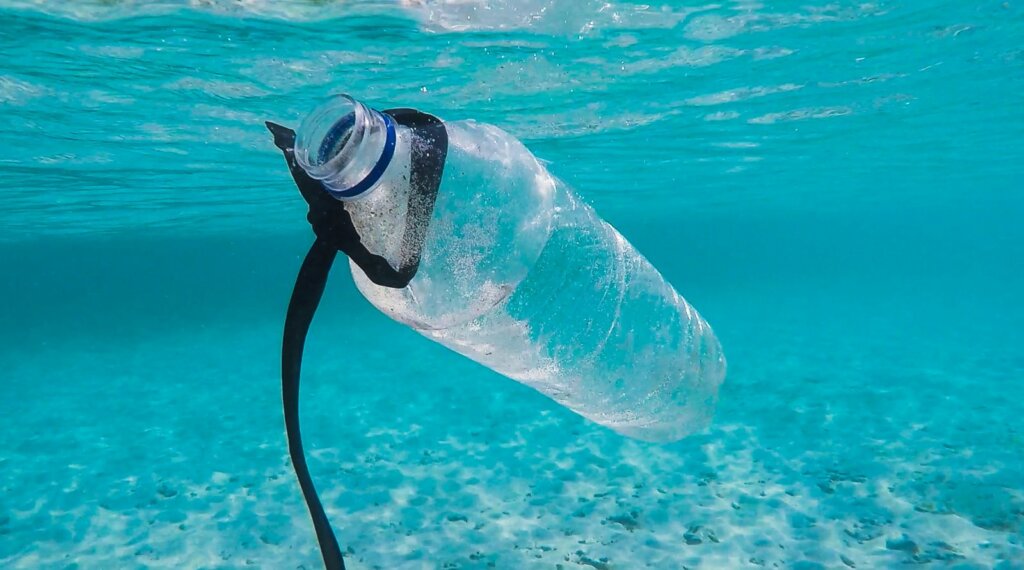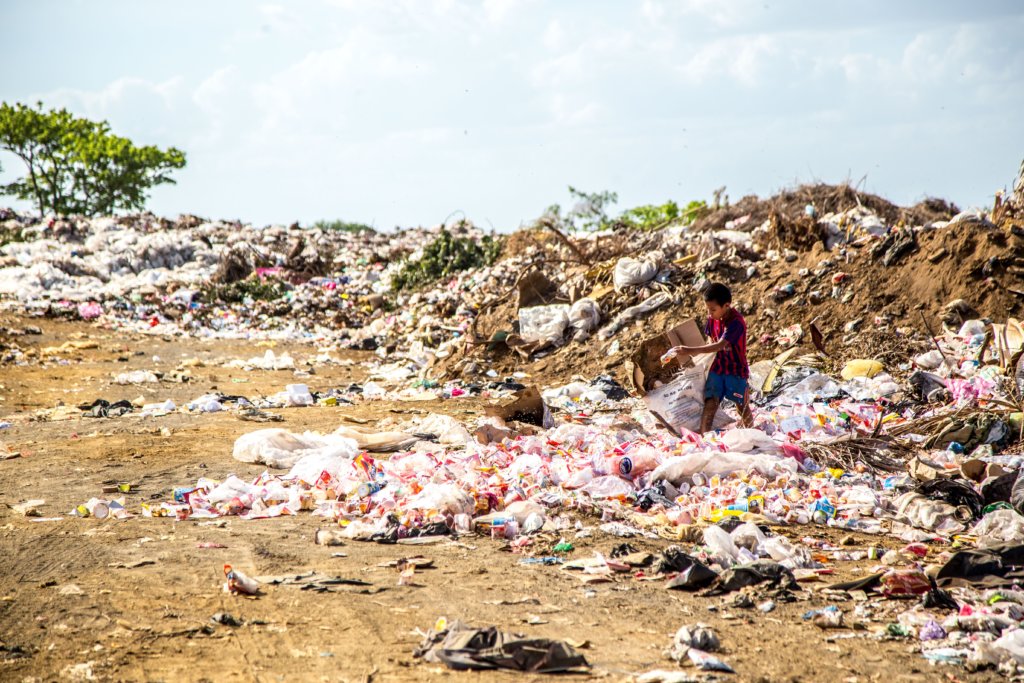This is a repost from Earth Day 2018. While many things have changed or progressed, others have not. In other words, this post is still relevant. Enjoy.
I watched a chilling Walmart commercial the other day. The premise: A child keeps spitting out a pacifier, which the family’s dog then slobbers all over. The kid also drops a sippy cup in the mud. The mother decides to reorder pacifier after pacifier and cup after cup instead of sterilizing the originals. The commercial ends with the dog surrounded by pacifiers and the mom patting the dog with a “What can you do?” sort of smile on her face. In the background, singers croon, “I just can’t get enough, I just can’t get enough.”
The commercial, and the message behind it, horrifies me. Particularly considering all our environmental problems. A friend shared a post on Facebook recently depicting the state of our world’s beaches in Bali, the Philippines, and Hawaii. Gone are pristine sandy shores. In their place we have cups and cutlery, we have bottles and bags. In the comments, many people said, “Pick up after yourselves! Throw stuff away!” I agree, throw stuff away, but that doesn’t address the whole problem.

There’s no reason to have a single-use plastic water bottle. Photo by Brian Yurasits on Unsplash
According to Greenpeace, even when plastic waste is collected, it can blow away and end up in rivers or oceans. Major rivers around the world carry an estimated 1.15 million to 2.41 million tons of plastic into the sea every year – the equivalent of 100,000 garbage trucks. Not all of that comes from plastic blowing away, obviously it also comes from littering, but I’d like to point out the trash still goes somewhere.
We think once the garbage truck picks up trash the problem is solved, but it’s not. Commercials like Walmart’s divorce us from the consequences of our actions. Reordering one pacifier after another because the dog drooled all over it and throwing perfectly good pacifiers away contributes to waste. I read somewhere that the most important part of the mantra “reduce, reuse, and recycle” is “reduce,” but that doesn’t contribute to economic growth so we don’t focus on it as much.
In yogic philosophy, there is a tenet called aparigraha. It means non-indulgence. Specifically, not indulging in the amenities and comforts of life that are superfluous for the preservation of physical existence. People usually have a hard time with that one. “Does that mean I can’t buy the latest iPhone? What about a new computer? Am I supposed to live in the woods off rainwater and tree bark?” Yes! Just kidding. We can’t all live in the woods. Also, what is essential for our survival changes with time, place, and person. Perhaps 15 years ago it wasn’t crucial for everyone to have internet, but these days it’s another utility like gas and electricity.
What I never grasped until watching the Walmart commercial is aparigraha isn’t about deprivation. It’s not being a martyr. It’s about Earth. It’s about paying respect to Mother Nature and realizing that my actions contribute to the destruction of the environment and destroying the environment means more pollutants and poorer health. It means wiping out certain species. It means natural disasters like the ones we’re currently experiencing. If the environment we reside in becomes a toxic wasteland, where are we supposed to go?
I could end this post here and proclaim the planet is doomed and we’re all screwed, but I won’t. I want to again go back to one of my favorite quotes from my spiritual teacher who said, “Difficulties can never be greater than your capacity to solve them.” Did you know scientists recently created an enzyme that eats plastic? It turns plastic back into a more usable form. Discoveries like that are taking place every day, but mindfulness is required on our part. We must break our addiction to consumerism. We need to change our way of thinking to create a world we all want to live in.
I dream of a world where we reduce our consumption. A world where we think twice before casually throwing something away. A world where we understand non-indulgence helps the environment and ultimately helps us. A world where we practice a new way of thinking to save planet Earth.
Another world is not only possible, it’s probable.
Someone asked me recently, what do I care what Elon Musk does with his money? To start with, why shouldn’t I care? We live in a society that pretends we’re not all connected. That what one person does somehow has no effect on anyone else. Want to own a newspaper company? Sure, go ahead! Build a rocket so you can go to space? Knock yourself out! Won’t make a difference in my life! But it does.
My spiritual teacher says, “The establishment of an ideal society depends on the mutual help of the members and their cooperative behavior.” We don’t have that. Instead, we have a hypercompetitive, rugged individualism mindset that is frankly antisocial. To take a recent example, Elon Musk’s buyout of Twitter is for his own gain. He’s not using money to help solve world hunger like he suggested he might.
In October 2021, David Beasley, the director of the United Nations’ World Food Program, told CNN that it would only take “$6 billion to help 42 million people that are literally going to die.” When the article was shared on Twitter, Musk responded and said he would sell Tesla stock if the program could provide a plan. Beasley did and thus far Elon has not donated. Some people think he still will, but I’m not holding my breath because again, most billionaires use their money for selfish pleasures like going into outer space, buying yachts, and building numerous multimillion-dollar homes. Either that or they use their money to acquire more wealth.
Another reason why I care what billionaires do with their money is it gives them an outsized voice. In the case of Elon Musk, owning Twitter will give him far too much influence on a media platform that has repercussions worldwide. Why should one person have so much power? Plus, when it comes to governance, the opinions of Jeff Bezos, Bill Gates, and Elon Musk far outweigh mine because they can afford high-priced lobbyists and unlimited campaign contributions. If a bill is bad for their business, it’s highly unlikely it will get passed.
Not to mention, the average citizen suffers when wealthy people make mistakes. When the banks failed in 2008, people lost their investments and their homes while bank executives received huge bonuses. We bailed out the banks but the ones who caused the loss of homes and investments became richer, according to Reuters.
What’s the solution here? A maximum wage, for starters, but also changing what we value. Instead of being in a race to acquire as much as we can as fast as we can, yogic philosophy touts aparigraha or non-indulgence. Specifically, not indulging in the amenities and comforts of life that are superfluous for the preservation of physical existence.
In the case of billionaires and their vast accumulation of resources, they’re hurting everyone. Income inequality depresses economic growth, leaves less for society to divvy up, and gives rise to criminal behavior, according to several studies referenced in the Washington Post.
So the short answer to why I mind how billionaires spend their money comes down to this: I care about the collective. My spiritual teacher says, “The collectivity is not outside you – your future is inseparably connected with the collective fortune. You must take the entire collectivity with you and move toward the sweetest radiance of the new crimson dawn, beyond the veil of the darkest night.”
To take the collectivity with us, we have to concern ourselves with what billionaires are doing and furthermore, not let people become billionaires in the first place.
I dream of a world where more people care how billionaires spend their money. A world where we understand our futures are inseparably connected to the futures of others. A world where we take to heart the principle of aparigraha. A world where we move together to create an ideal society.
Another world is not only possible, it’s probable.
I watched a chilling Walmart commercial the other day. The premise: A child keeps spitting out a pacifier, which the family’s dog then slobbers all over. The kid also drops a sippy cup in the mud. The mother decides to reorder pacifier after pacifier and cup after cup instead of sterilizing the originals. The commercial ends with the dog surrounded by pacifiers and the mom patting the dog with a “What can you do?” sort of smile on her face. In the background, singers croon, “I just can’t get enough, I just can’t get enough.”
The commercial, and the message behind it, horrifies me. Particularly in the light of all our environmental problems. A friend shared a post on facebook recently depicting the state of our world’s beaches in Bali, the Philippines, Hawaii. Gone are pristine sandy shores. In their place we have cups and cutlery, we have bottles and bags. In the comments many people said, “Pick up after yourselves! Throw stuff away!” I agree, throw stuff away, but that doesn’t address the whole problem.
According to Greenpeace, even when plastic waste is collected, it can blow away and end up in rivers or oceans. Major rivers around the world carry an estimated 1.15 million to 2.41 million tons of plastic into the sea every year – the equivalent of 100,000 garbage trucks. Not all of that comes from plastic blowing away, obviously it also comes from littering, but I’d like to point out the trash still goes somewhere. We think once the garbage truck picks it up the problem is solved, but it’s not. Commercials like Walmart’s divorce us from the consequences of our actions. Reordering one pacifier after another because the dog drooled all over it and throwing perfectly good pacifiers away contributes to waste. I read somewhere that the most important part of the mantra “reduce, reuse, and recycle” is “reduce,” but that doesn’t contribute to economic growth so we don’t focus on it as much.
In yogic philosophy there is a tenet called aparigraha. It means non-indulgence. Specifically, not indulging in the amenities and comforts of life that are superfluous for the preservation of physical existence. Usually people have a hard time with that one. “Does that mean I can’t buy the latest iphone? What about a new computer? Am I supposed to live in the woods off of rainwater and tree bark?” Yes! Just kidding. We can’t all live in the woods. Also, what is essential for our survival changes with time, place, and person. Perhaps 10 years ago it wasn’t crucial for everyone to have internet, but these days in my community it’s another utility like gas and electricity.
What I never grasped until watching the Walmart commercial is aparigraha isn’t about deprivation. It’s not being a martyr, living off of less so that everyone gets their fair share. Non-indulgence at least from my perspective is about Earth. It’s about paying respect to Mother Nature and realizing that my actions contribute to the destruction of the environment, and destroying the environment means more pollutants and poorer health. It means wiping out certain species. It means natural disasters like the ones we’re currently experiencing. If the environment we reside in becomes a toxic wasteland, where are we supposed to go?
I could end this post here and proclaim the planet is doomed and we’re all screwed, but I won’t. I want to again go back to one of my favorite quotes from my spiritual teacher who said, “Difficulties can never be greater than your capacity to solve them.” Did you know scientists recently created an enzyme that eats plastic? It turns plastic back into a more usable form. I’m confident more things like that will happen, but more mindfulness is required on our part. Breaking our addiction to consumerism and thoughtlessness will go a long way in creating a world in which we all want to live.
I dream of a world where we reduce our consumption. A world where we think twice before casually throwing something away. A world where we understand non-indulgence helps the environment and ultimately helps us. A world where we treat nature with the care and reverence it deserves.
Another world is not only possible, it’s probable.
I don't often write while I'm on vacation, but I'm not on vacation even though I'm traveling so you're getting a blogpost! AWIP (Another World is Probable) is a very introspective blog, obviously. I'm an introverted person, so usually I write about things we can do individually to make our lives better and make the world better. This week I'm taking more of an outward focus.
When I interviewed for a potential sublet the woman asked me what is most important to me in terms of living with someone else. My immediate answer was, "being considerate." That's really the heart of it for me. Being considerate means thinking of other people, means selflessness instead of selfishness. My absolute pet peeve is when someone is being inconsiderate. I'm getting up in arms just thinking about it.
It occurred to me this week just how important it is to think of other people. We (in the West) often have this view of the world and how it's "dog eat dog." There's this idea you have to take what's yours, be selfish, get your own needs met. That's true to a degree but it's imbalanced. You know where "dog eat dog" gets us? Just watch this video on the distribution of wealth in the U.S.
I covered my eyes for parts of this video. I couldn't even look at the infographics. I am so horrified, I can't even tell you. ONE PERCENT of Americans have FORTY PERCENT of the nation's wealth. ONE PERCENT. And 80% of the nation has to split up 7% of the wealth. Guys, that's messed up. And you know how we got that way? Because everyone was looking out for themselves.
There's a concept in yoga, a social norm, called aparigraha. It means living with the minimum necessities. I've struggled with this concept for years. My parents and I would talk about what it meant. Does getting a flat-screen T.V. fall under a minimum necessity? We would agonize over this, somehow believing it was an internal thing to live by. It's not. What I mean is aparigraha is a way of ensuring everyone gets their needs met. It's the opposite of hording. It's freeing up resources. When aparigraha is not followed we end up with the inequitable distribution of wealth in the U.S.
I've been hesitant to talk about this because I don't want to offend anyone, but part of the problem is this law of attraction idea that if you think about becoming a millionaire then you will. Well, yes, you may attract all that money to you, but the idea everyone can be a billionaire is a load of phooey. Energy is unlimited but money is not. Money comes from trees, or silver, or gold, or nickel, or whatever, and that means it's finite. There is a limit to how much money can be printed. So no, everyone cannot be a billionaire. And everyone cannot be a billionaire because while someone is practically wiping their butt with money, there's someone else who's scrimping for change. That's just the way it is.
Other people far more intelligent than me have written about solutions to all this, but a great place to start on the individual level is with the notion we live in a dog-eat-dog world. We don't have to you know. We blame society but we forget we are society. We change all this. Sure, we change our policies and the like, but it's also important to change the underlying mentality. There is enough for all of us but it starts with being considerate of other people. Of noticing what's going on around us. Of compromising to ensure not only my needs get met but those of the people around me as well. I don't know about you but I'd much rather live in a dog-help-dog world.
I dream of a world where every single person gets all of their needs met. A world where there is a more equal distribution of resources. A world where we think about the people around us, which means you're thinking of someone else, but they're also thinking of you. A world where we share what we have without differentiation as we all move as one together.
Another world is not only possible, it's probable.

